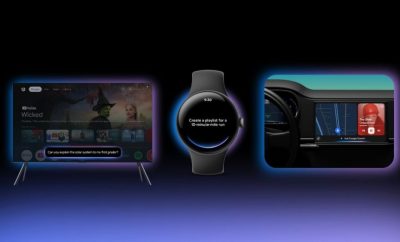
What Google knows about you
For all the many controversies around Facebook’s mishandling of personal data, Google actually knows way more about most of us, Axios chief tech correspondent Ina Fried reports.
- Just how muchGoogle knows depends to some degree on your privacy settings — and to a larger degree on which devices and services you use.
- It likely knows everything you’ve ever typed into your browser’s search bar and every YouTube video you’ve ever watched.
- But that’s just the beginning.It may also know where you’ve been, what you’ve bought and who you communicate with.
What Google collects:
- The terms you search.
- The videosyou watch.
- Voice and audio informationwhen you use audio features.
- Purchase activity.
- People with whom you communicate or share content.
- Activityon third-party sites and apps that use Google services.
- The adsand content you view on Google’s sites, as well as interactions with that content.
- Chrome browsing historyyou’ve synced with your Google Account.
- Location data,which Google can either gather directly via GPS data or infer from other sensors and data, including IP addresses, nearby Wi-Fi routers and Bluetooth beacons.
What’s next: Today, Google uses its vast trove of data mostly to target ads at us. Increasingly, it will apply the same resource to powering and optimizing the artificial-intelligence-based services that it and its rivals are building.
- Go deeper, share this story.
- Earlier on Axios: What Facebook knows about you.
Περισσότερα εδώ: What Google knows about you
-A deep dive on privacy
The grand bargain of the digital age, in which consumers have traded their data for free services, is coming under belated, but intense scrutiny. However, as Axios’ tech team reports, it’s too late to regain control of the personal data that’s been bought, sold and leaked all over the web for the past 3 decades.
In this weekend’s Axios Deep Dive, we looked at the many issues surrounding privacy, from proposed regulations to the role of data brokers to the need for massive personal data to provide the raw fuel of artificial intelligence.
Here’s what it’s come to:
- Autonomous vehicles collect imagesof everyone they pass on the street.
- Dozens of companies mine and sell location datafrom smartphone apps.
- App developers give personal detailsto major online platforms.
- Smart-home devices and digital assistants track your daily habits and have microphones.
- Genetic testing services share datawith app developers and drug companies.
- Half of the country was impacted by the Equifax financial data breach.
Why it matters: If information is power, our lackadaisical approach to safeguarding details about our lives has made a handful of companies more powerful than we ever expected, and it’s made consumers more vulnerable than ever.
- A majority of Americans (64%) say they have personally experienceda major data breach, according to Pew Research Center.
- Americans listed privacy of data as the top priority companies should address, beating issues like poverty and gun violence, according to the Axios-Harris Poll 100.
The big picture: A reckoning is underway. Major tech companies have announced sweeping changes to their businesses, with privacy — or at least their own versions of privacy— in mind.
Go deeper: Read the whole report.
- A growing majority now views our online privacy as a crisis
- AI is useless without the fuel of highly detailed personal data
- Bill would require tech platforms to disclose the value of users’ data
- Data brokers know more about you than your closest friends
- Practices to anonymize data often reveal a lot of detail about individuals
- Congress is playing catch-up in the race to regulate tech giants’ data practices
- China has a growing share of the world’s data library
Πηγή: axios.com
Plus
With Democrats now in control of the House, former FCC Chairman Tom Wheeler explains how the lower chamber could take a leaf from Republican President Theodore Roosevelt’s 20th-century playbook to bring much-needed consumer protection and government oversight to the internet age.
Περισσότερα εδώ: A Democratic agenda for regulating technology
Πηγή: brookings.edu




